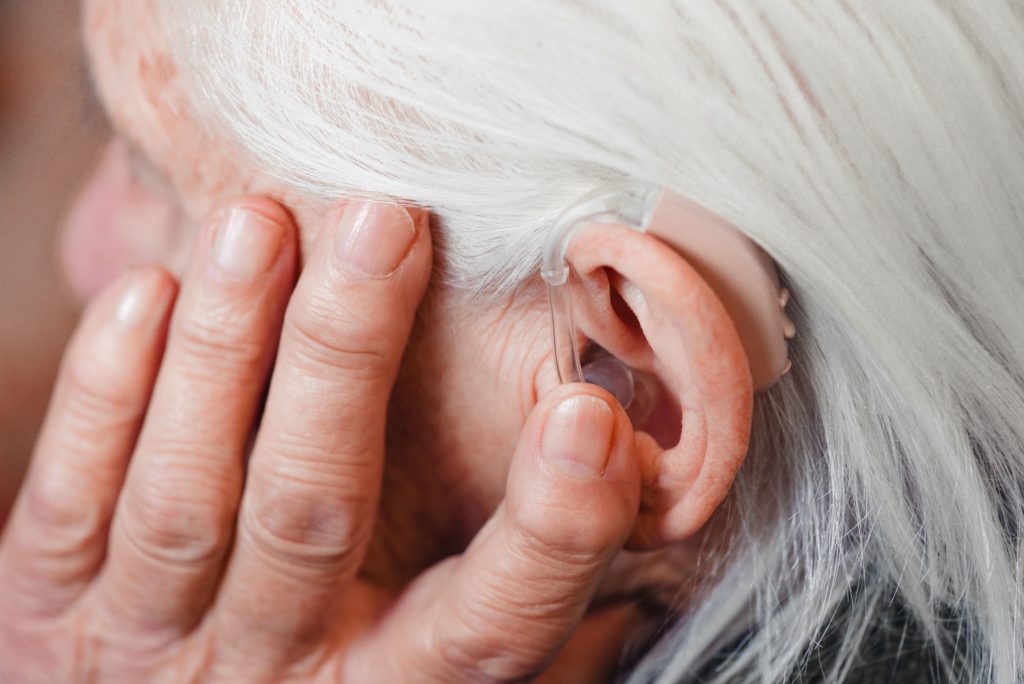Many people around the world suffer from hearing loss. It’s a sad reality, as people of all ages are affected by this and they struggle to cope with it without the correct treatment.
Hearing loss can affect people in many ways, but most notably it can affect your brain significantly. Today, we will delve into why hearing loss affects your brain, what you should look out for, and how you can get the right treatment from your audiologist.
Effects of untreated hearing loss
Leaving untreated hearing loss for a long period of time can have a significant impact on your life. It can quickly turn your life upside down, and it’s important you seek help from your local audiologist. One of the many effects you can experience with hearing loss is a decrease in your mental health.
The constant struggle of miscommunication between your friends and family can leave a massive burden on you mentally. This may cause you to isolate yourself and withdraw from social activities, which further impacts your mental health. If this is beginning to occur for you then it’s important you speak to the people closest about your situation, we urge you to.
Also, a decrease in your hearing ability can have a serious effect on your understanding of your surroundings. Your brain will be overwhelmed trying to support your faded hearing, and this in turn will cause you to misjudge objects you come across or into contact with on a daily basis. This increases the chance of you falling over, so it’s crucial you can get the correct support promptly in case you do fall over and you haven’t got anyone with you to help.
So, seeing an audiologist quickly about your hearing decrease can have a huge impact going forward. At The Hearing Specialist, our dedicated team can discover the causes of your hearing loss before it starts to have a major impact on your brain and its functions.

Memory
After one hearing loss symptom appears, another one will soon follow, which can lead to an increase in your cognitive load. Your brain will be strained more frequently and cause you to feel more tired due to excessive brain usage. A domino effect will begin to follow, as the cognitive load will begin to use other brain functions such as your memory.
Untreated hearing loss can result in a change in the brain function that’s devoted to processing hearing and auditory information differently. When you speak to someone, the brain processes incoming sounds you retrieve so you can understand what you hear. However, because the brain is working overtime to process the sounds you can’t hear, it will use other resources like your memory to judge/anticipate what someone or something is saying/doing.
This constant struggle for the brain will add anxiety and stress to the mix and put you in a position where you isolate yourself from others. The cerebrum stimulation decreases when you distance yourself from friends and family, and it’s vital you never let it reach this stage if you’re suffering from hearing loss.
Your hearing plays a crucial part in keeping your memory sharp, so be sure to get in touch with your local audiologist to prevent any further damage.
Dementia & alzehimers
Dementia and Alzheimers are two killers of the brain and they can leave a damaging impact on the victim’s brain and their loved ones. Many people suffer from either one of these diseases, and there can be many reasons why it can occur. In modern times, hearing loss has been detected to be a big contributor to Dementia and Alzheimer’s, and it’s made more audiologists aware of this occurrence.
Because the brain is working harder to process new information it’s receiving, the lack of stimulation will cause the cerebrum cells to shrink over time. This then results in dementia and Alzheimers appearing, and it’s important you receive the best support for both of these mental conditions.
At The Hearing Specialist, we will inspect your ears using a handheld otoscope to check for any signs of abnormalities, medical conditions or a build-up of ear wax that could be causing your hearing problems. Thorough hearing tests will be performed which may include a tone test and a speech test to assess all aspects of your particular hearing issues and concerns.

Auditory deprivation
We’ve established how hearing loss can affect you mentally, but it can also lead to the brain struggling to establish sound. When this occurs, it is called auditory deprivation, which translates to the cerebrum being unable to process noise over time. If left untreated, this area of the brain will focus on other areas to operate as it is not receiving the correct stimulation.
If you leave this too late and do not get the right treatment straight away, you could still struggle to identify sounds – it will be a tough challenge to face. So, booking an appointment with your doctor straight away is essential so you can be examined thoroughly and get the best help possible.
Unfortunately, it’s not clear or proven whether auditory deprivation is permanent or not, as it affects people differently. However, the brain is powerful, and as long as you can get enough stimulation to the hearing functions, new connections can be formed, so there is a chance you could understand new information better.
To make sure you avoid suffering from this issue, do not let slide any sudden hearing loss. It’s crucial you get advice and treatment promptly from your doctor or audiologist.
If you’ve found our latest article insightful or you believe you’re suffering from hearing loss. Get in touch with us today, and we will diagnose the issue you’re suffering with




